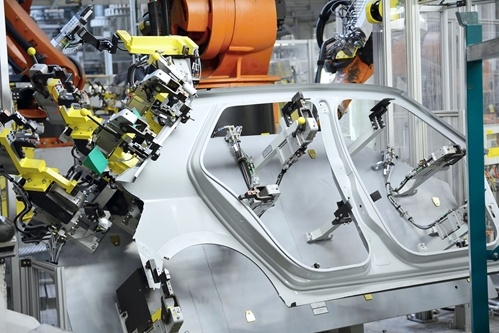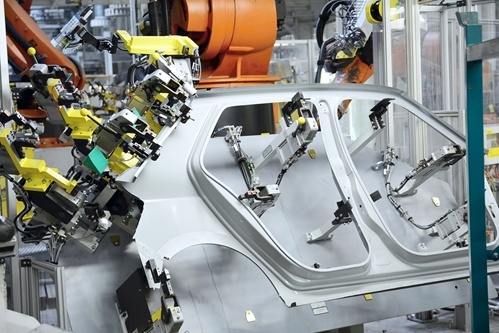
Robots scare a number of manufacturing workers. The New York Times reported some organizations and individuals are so worried about a machine takeover of human jobs that drastic propositions in debate, like a universal basic guaranteed income, seem feasible.
On the other hand, Insurance Journal suggested a much less extreme possibility in the near future. It seems likely robots will not replace humans in manufacturing and warehouse management, rather machines and traditional employees will work side-by-side over the next couple of decades. As companies implement automated equipment and self-service machines into shop floors, distribution centers and stores, they discover the limitations of the technology and recognize the need for human skills.
The Slowdown of the Robot Takeover
The appeal of robotic workers is fairly obvious. Machines don’t need breaks; they offer consistent performance while working hours humans couldn’t possibly commit to. Companies can design machines to perform very particular tasks, using advanced technology to work with dangerous materials or measure quality in the most precise degree.
The Guardian reported automotive manufacturing has more robotic equipment than any other industry. Machines can lift heavy supplies and create products that align with strict safety standards. Still, Mercedes-Benz replaced some of its robots with humans who can perform more specialized tasks. Before the change, automated machines were huge pieces of equipment restricted to their own part of a factory. Now, Mercedes-Benz wants smaller, more flexible machines that can function right next to human co-workers.
One of the reasons, the automaker wanted to reintroduce human workers into production lines is because they can perform delicate tasks associated with special features in modern car models. Large machines complete the bulk of the work, and then people move in to finish autos with particular features to appeal to a consumer-driven market.
Finding a Place for People
Even if robots don’t completely replace humans, The Wall Street Journal indicated most professions will be forced to change. For example, self-driving autos may call for fewer vehicle operators but more inventory distribution managers that can coordinate automated deliveries and learn from data. In the future, jobs may call for more creativity and insight, skills specific to human beings.
InformationWeek said companies that implement automated data collection and robot solutions often discover where human beings fit in after observing results. It’s often smarter, to explore the limitations before changing daily procedures, but capturing real-time data from innovative equipment helps companies recognize the value of purchases and where new solutions need help.
If a manufacturer starts working with robots that can move around a shop floor, it needs a way to make the equipment’s performance visible in a central ERP software solution. This may call for mobile data collection devices so workers can log information they observe after implementing the machines or connected robots updating managers themselves.
ALSO READ: Talent Acquisition in the Supply Chain »
The Advantages of Automation
Automated performance saves time and resources. While some may fear this means fewer available work hours, it could free employees to perform more challenging and engaging activities. The InformationWeek article shared the example of nurses being able to spend more time with patients after automated data collections eliminated back-office routines from their daily schedules.
In a customer case study, RFgen described how a metal equipment manufacturer implemented ERP software, a portable terminal, wireless scanners and a connected printer to automate receiving tasks, among other activities. In the end, the company estimated the technology saved them five hours a day and drastically decreased errors in data entry. Productivity was increased and managers received alerts and notices from the machines when it was time to move forward with a project.
Depending on the company, robots may be a boon to employees rather than a burden. Smart machines and automated data collection prevents workers from overlooking mistakes or performing redundant activities. When implemented correctly, robotic equipment doesn’t always remove humans from the picture, but it might erase common causes of stress from workers’ lives.






